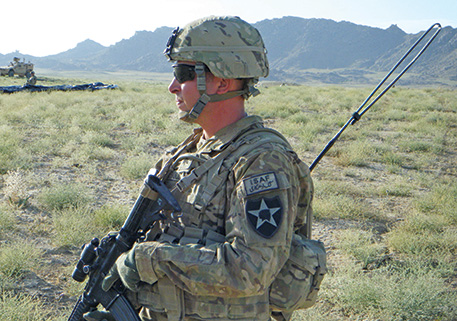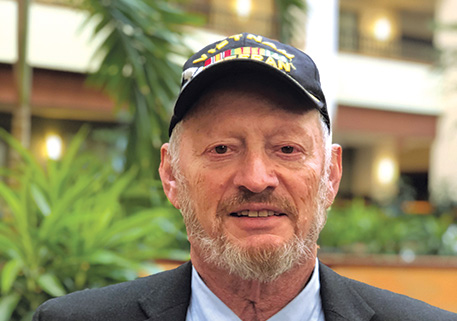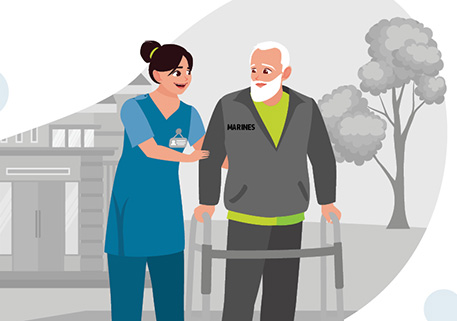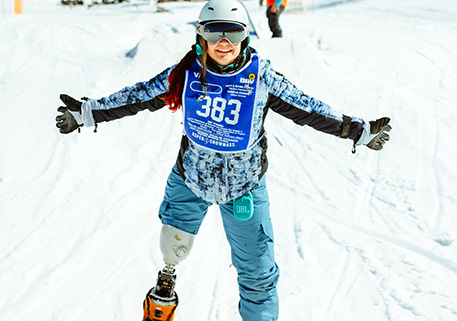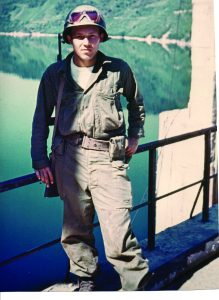
A team of DAV service officers come together to assist Korean War Army veteran increase VA rating
The bitter, relentless Korean winter of 1951 never left Army veteran Robert Willett. In the nearly seven decades since returning home from the Korean War, he has continued to live with nerve damage from his wartime frostbite and hearing loss due to proximity to the thundering booms of 155 mm artillery cannons.
After facing combat on the shores of the peninsula at the end of January, he was part of an advanced group of soldiers heading north to scout a location for a headquarters. By the time they began their trek from the coastal city of Pusan, much of the country’s infrastructure had been destroyed, obstructed or otherwise impassable.
“There were no roads or bridges. They were all gone,” said Willett. “If you were crossing a river, you got wet one way or the other, and there was no real place to dry out at night.”
After negotiating piercingly cold waters, frostbite took hold of his toes and feet.
“I couldn’t feel anything there,” he added. “It was enough to knock me out for a while.”
Willett’s tour in Korea wasn’t the first time he had worn an Army uniform. While enrolled in college in his home state of Illinois, he and a friend enlisted in the summer of 1944 to serve in World War II, and at age 18, he was selected to attend officer candidate school.
Instructors told Willett they were beefing up officer ranks in preparation to invade the Japanese mainland. However, rumors of the war’s end began to swirl, and within a few weeks, the U.S. was celebrating victory over Japan.
“I was 18 years old, and they were going to let me take 44 guys into combat,” he said. “In retrospect, I thought that was probably not the best idea the Army had.”
Candidates were offered a choice: serve two years after completing officer training or serve one year as an enlisted soldier, said Willett. He opted to take the latter, serving in postwar France, where he and six other soldiers guarded a chemical weapons depot and German prisoners of war.
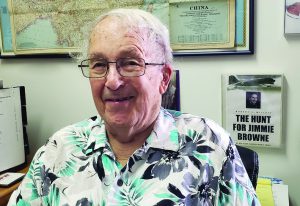

When he returned home, Willett went to college but remained in the Army Reserve after learning soldiers received $18 for drill weekends. He was just one course short of earning a college degree when he was activated to support the Korean War in 1950 and assigned to an artillery unit. In Korea, his primary duty was running communication wire to forward observers close to the front lines and subordinate battalions.
Willett received service connection for his cold-weather injuries in 2004, but other ailments had gone unchecked for decades. This year, he reached out to DAV hoping to increase his Department of Veterans Affairs disability rating.
Liza Perez and Jackie Graham, both DAV service officers in Bay Pines, Fla., submitted his claims for hearing loss and ringing in his ears, both of which were approved this past spring.
“Jackie was looking to make sure I got all of the benefits I’m entitled to,” added Willett. “She was a jewel.”
But the VA overlooked one claim that would push his overall rating even higher.
“Somehow, the VA missed the Individual Unemployability,” Graham said. “We reviewed his case and concluded that was a mistake.”
As the coronavirus outbreak intensified in the United States, much of daily life began to slow or, in some cases, grind to a halt. In May, Willett reached out to DAV via a temporary new hotline set up in the wake of the pandemic so that veterans can speak directly to service officers regarding claims assistance.
Michael Rhilinger, a DAV benefits advocate in Boston, picked up the line and was able to get Willett’s claim across the finish line.
“The fact that we’re working from home and DAV implemented the phone system, I was lucky enough to be next in the rotation when Mr. Willett called,” said Rhilinger. “After speaking to him, I put in a claim for individual unemployability and reached out to the VA to expedite it.”
In a matter of days, Willett received the Individual Unemployability benefit he’d earned. Rhilinger credits the lightning-fast approval to the fantastic working relationship between the VA and DAV.
The rating increase helped ease some financial pressure, and Willett—who has authored six books—wrote to his local newspaper in May praising DAV’s efforts.
“I have recently been helped by Disabled American Veterans (DAV) through several of the service offices, and the results have been remarkable,” he wrote in his letter to the editor published in Florida Today. “I know other veterans’ organizations have similar service officers available, but I have to take my hat off to those at DAV.”
  |
  |
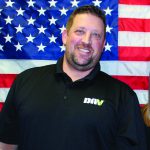  |
Despite working in different states, benefits advocates (from left) Liza Perez, Jackie Graham and Michael Rhilinger advocated for Willett to ensure he received the VA compensation and Individual Unemployability he earned for injuries sustained during the Korean War.



